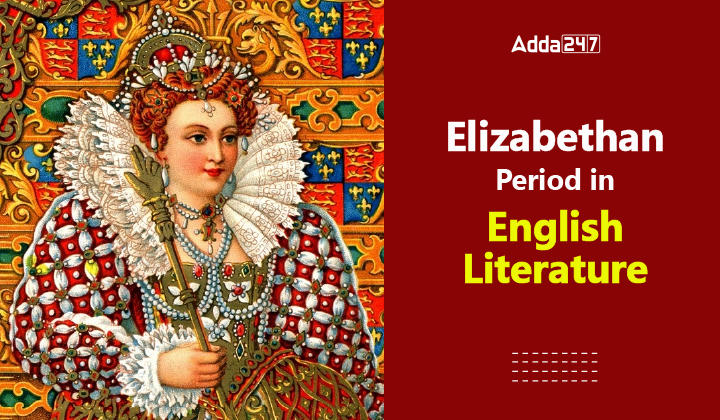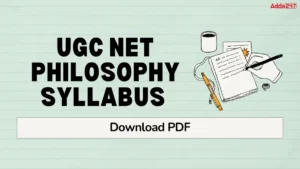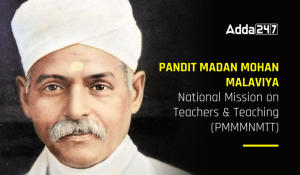Table of Contents
Learning about the writers and their works, themes, plots, and other details about their life is not sufficient to fully understand literature. It is closely intertwined with the socio-political mood and the changes in the trend of the time. This also becomes a basis for distinction for various different ages and time periods.
The Elizabethan Age is among the most important periods in English Literature known for its vigour and inclination for emulating the Classics like the Virgil and its sense of innovative form. Thus, it is important to understand the background and features of the Elizabethan Age. Let’s jump in.
What is the Elizabethan Age?
The Elizabethan Age in English literature refers to the period that coincides with the reign of England’s Queen Elizabeth I (1558-1603). Often, the periods or distinct ages in English literature are named after some towering identifiable figure from the literary world or after someone with socio-political status. The Elizabethan period is considered from 1550 to 1630. All the works written during this period are considered Elizabethan literature.
Historical Background of the Elizabethan Age
The Elizabethan Age (1550-1630) in English Literature provided a conducive environment for art and writers to flourish. The name of the age is after the reign of Queen Elizabeth. Two major themes can be observed as far as the historical background of the Elizabethan Age in connection with English Literature.
- Sense of Settlement – Though there were still a few dynastic problems during this period, the nation’s political environment was stable. Compared to the wars and chaos of the previous period, it didn’t culminate in open warfare. The union of the Crowns settled the ancient quarrels between Scotland and England. This helped literature big time, numerous patrons of literature and a period where people could focus on other things.
- Expansion in the true sense – An expansion in terms of mental and geographical horizons marked this era. Knowledge pouring from the East and voyages made discoveries of new lands and routes. Often these voyages were chronicled. Finally, the Elizabethan Period had just the right combination of socioeconomic conditions to support drama. This genre of English Literature flourished to new heights under the penmanship of Marlowe and other University wits, and of course, Shakespeare.
Literary Features of the Elizabethan Age
The Elizabethan Age is considered to be the height of the English Renaissance. An inclination marked it for the classics. Poets and dramatics took inspiration from Italian forms and genres such as the love sonnet, pastoral poems, and allegorical epics. Musicality, rhythm, verbal sophistication, and romantic exuberance are priorities by many writers over form, leading to new structures like the introduction of English English mode or Shakespearian mode. Let’s briefly examine the major literary features of the various genres.
- The New Classicism – There was a revival of studying the classics, especially Greek and Latin, in all branches of English Literature. This had a visible impact on English Literature as it polished and tempered the earlier rudeness of English Literature.
- Increased output – As stated earlier, dude calm and stable socio-political situation of the era resulted in an abundance of output. Pamphlets and treaties were freely written. Literary questions often became topics of national importance.
- The New Romanticism – In the true sense, the Elizabethan Age is English Literature’s first and great romantic epoch. The quest for the remote, wonderful, and beautiful was all there. The daring and resolute spirit of adventure in literary writing is evident from the temperament to fiddle with the classical structures, motifs, and themes.
- The Drama – This was the greatest age for drama in English Literature as the greatest dramatist of all time, William Shakespeare, was active and produced one masterpiece after another. However, even before him, there were precursors in the form of University Wits who laid the foundation and were also a source of inspiration for Shakespeare.
- Poetry – Though poetry is overshadowed by exemplary drama output, a few standout poets took the mantle forward of English poetry after Chaucer. It was marked by a quality of great and original.
- Prose – For the first time in English Literature, prose rises to a position of some importance. It was shedding its Latin burden and acquiring a new voice, tradition, and universal application.
Famous Writers of the Elizabethan Age
The Elizabethan Age took English LIteratyure to new heights and gave what was missing up to that point; a national culture & tradition. Countless writers made contributions. Though the Elizabethan age is known for its impressive drama output, other genres, such as poetry and prose, also flourished through select writers. Let’s take a quick look at the list of Famous writers of the Elizabethan Age.
| Famous Writers of Elizabethan Age | |
| Writer | Major Work |
| Edmund Spenser |
|
| John Donne |
|
| John Lyly |
|
| Christopher Marlowe |
|
| William Shakespeare |
|
| Ben Jonson |
|
Download UGC NET English Study Note PDF
To Download the UGC NET English Study Note PDF, candiadtes must click on the following link. It is beneficial for the candidates to download and save the UGC NET English Study Note PDF to easily refer to it during preparation and revision.
Click Here to Download Study Notes on the Elizabethan Period
| UGC NET Study Notes Important Links | |
| UGC NET Study Notes for Paper 1 | UGC NET English Literature Notes |
| UGC NET Commerce Notes | |




 UGC NET Philosophy Syllabus 2025 PDF Dow...
UGC NET Philosophy Syllabus 2025 PDF Dow...
 UGC NET Commerce Syllabus 2025 PDF Downl...
UGC NET Commerce Syllabus 2025 PDF Downl...
 PMMMNMTT for NEP 2020, Check details Her...
PMMMNMTT for NEP 2020, Check details Her...














